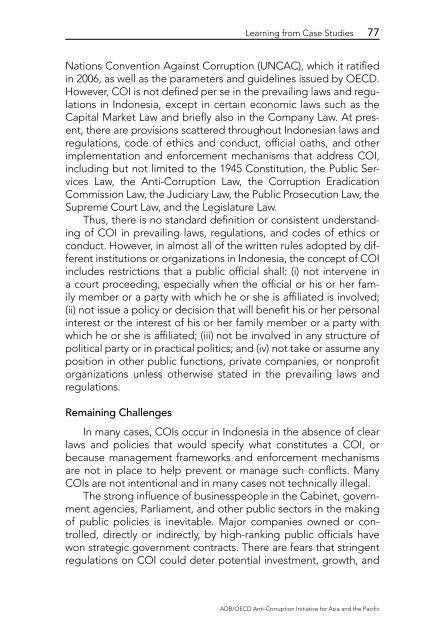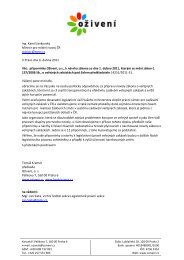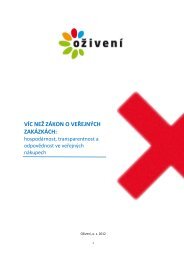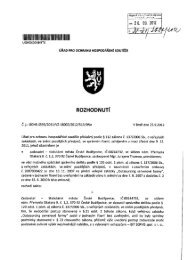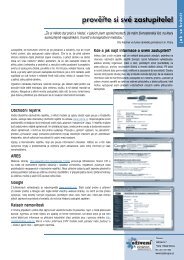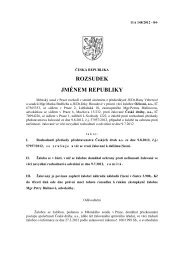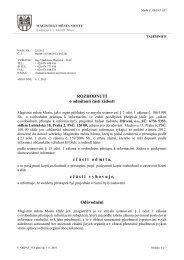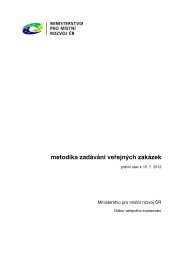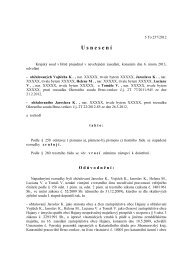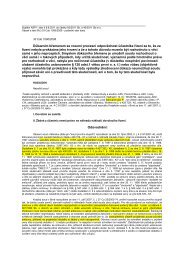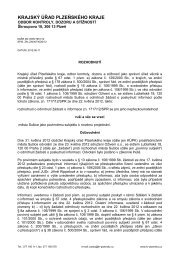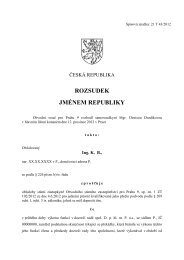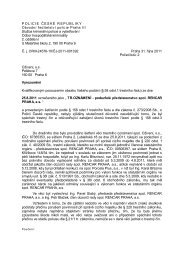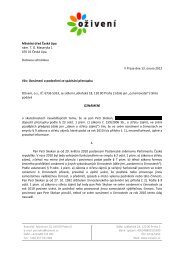Managing Conflict of Interest - Organisation for Economic Co ...
Managing Conflict of Interest - Organisation for Economic Co ...
Managing Conflict of Interest - Organisation for Economic Co ...
You also want an ePaper? Increase the reach of your titles
YUMPU automatically turns print PDFs into web optimized ePapers that Google loves.
Learning from Case Studies 77Nations <strong>Co</strong>nvention Against <strong>Co</strong>rruption (UNCAC), which it ratifiedin 2006, as well as the parameters and guidelines issued by OECD.However, COI is not defined per se in the prevailing laws and regulationsin Indonesia, except in certain economic laws such as theCapital Market Law and briefly also in the <strong>Co</strong>mpany Law. At present,there are provisions scattered throughout Indonesian laws andregulations, code <strong>of</strong> ethics and conduct, <strong>of</strong>ficial oaths, and otherimplementation and en<strong>for</strong>cement mechanisms that address COI,including but not limited to the 1945 <strong>Co</strong>nstitution, the Public ServicesLaw, the Anti-<strong>Co</strong>rruption Law, the <strong>Co</strong>rruption Eradication<strong>Co</strong>mmission Law, the Judiciary Law, the Public Prosecution Law, theSupreme <strong>Co</strong>urt Law, and the Legislature Law.Thus, there is no standard definition or consistent understanding<strong>of</strong> COI in prevailing laws, regulations, and codes <strong>of</strong> ethics orconduct. However, in almost all <strong>of</strong> the written rules adopted by differentinstitutions or organizations in Indonesia, the concept <strong>of</strong> COIincludes restrictions that a public <strong>of</strong>ficial shall: (i) not intervene ina court proceeding, especially when the <strong>of</strong>ficial or his or her familymember or a party with which he or she is affiliated is involved;(ii) not issue a policy or decision that will benefit his or her personalinterest or the interest <strong>of</strong> his or her family member or a party withwhich he or she is affiliated; (iii) not be involved in any structure <strong>of</strong>political party or in practical politics; and (iv) not take or assume anyposition in other public functions, private companies, or nonpr<strong>of</strong>itorganizations unless otherwise stated in the prevailing laws andregulations.Remaining ChallengesIn many cases, COIs occur in Indonesia in the absence <strong>of</strong> clearlaws and policies that would specify what constitutes a COI, orbecause management frameworks and en<strong>for</strong>cement mechanismsare not in place to help prevent or manage such conflicts. ManyCOIs are not intentional and in many cases not technically illegal.The strong influence <strong>of</strong> businesspeople in the Cabinet, governmentagencies, Parliament, and other public sectors in the making<strong>of</strong> public policies is inevitable. Major companies owned or controlled,directly or indirectly, by high-ranking public <strong>of</strong>ficials havewon strategic government contracts. There are fears that stringentregulations on COI could deter potential investment, growth, andADB/OECD Anti-<strong>Co</strong>rruption Initiative <strong>for</strong> Asia and the Pacific


